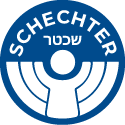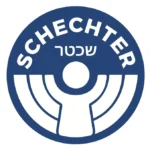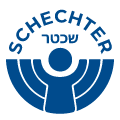Faye Bearman has called Schechter her professional home for nearly 24 years—since she earned her MAEd in 2000.
During this time, she has inspired hundreds of students with her passion and expertise in Judaic studies and t’fillah. She currently serves as Judaic Studies Curriculum Coordinator and Instructional Coach, and is a proud parent of two Schechter alumni and a current student.
This is Faye’s third year as a school leader with Hadar Institutes’s Pedagogy of Partnership (PoP), which provides cutting-edge professional development and resources for educators, school leaders, and families to enable learners of all ages to develop the habits of wonder, empathy, and responsibility toward others and Torah.
Q: You were recently featured in Hadar’s PoP School Leader Spotlight. What is Schechter’s approach to teaching and studying Torah?
A: PoP’s philosophy is “How we learn is what we learn,” and Schechter has adopted this approach. We focus on havruta-syle learning (Aramaic for “friend”) and help students build the skills to learn with another person in a way that deepens their learning and relationships. Our goal is to help students gain the tools to engage with a text, with another person, and with the world.
Q: How many partners are there when studying Torah?
A: Just as a student needs their human partner to help draw out their thoughts, ideas, and questions, so, too, does the text partner. Our students learn that there are three partners in havruta-based learning—themselves, a human partner, and a text. Imagine an equilateral triangle with a text and two students at each point. Our students learn how to invite the text into the partnership, how to give it a voice, and how to listen to it. This approach works with a wide variety of texts, most subjects, and any age group.
Q: What are some of the PoP tools you’ve implemented in Schechter’s Judaic Studies classrooms?
A: The PoP toolbox is extremely rich. Teachers transition students into learning through a variety of interactive warm-ups designed to check in on how everyone is doing, give students an opportunity to learn something new about their classmates, or subtly foreshadow a particular skill that will be taught or practiced in the near future.
Q: How are speech prompts used to help guide students’ learning?
A: Speech prompts are tools that are learned and practiced until they become common language. These include: I wonder, I notice, where is your evidence, I want to build on what you’re saying, my idea is different from yours, and please tell me more about what you mean. PoP even teaches attentive silence! Our students learn the importance of listening attentively and without interruption, and then to take the time to consider what their partner is saying before jumping in with an immediate response. These are skills that students can use throughout their lives!
Q: What’s next for your PoP-inspired work? What are you hoping to share with your fellow educators?
A: I’m proud of our commitment at Schechter to professional growth and development. Our 5-8 Judaic studies teachers are already trained in PoP, and two general studies teachers are currently in training. We hope to grow our PoP practice by training more teachers in both general and Judaic studies. And while our teachers may not all be formally trained in PoP (yet!), everyone knows about the triangle, PoP attitudes toward learning, and learning protocols, because we use PoP as an anchor for our professional development throughout the year. PoP isn’t just for kids–it’s for everyone!









